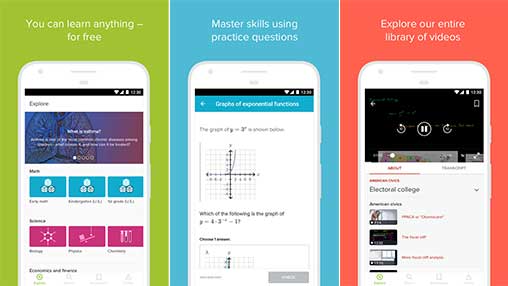
Those core tests can run on our CI server without having to deal with emulators, which have proven to be difficult to maintain. For instance, we can run our core module on a vanilla JVM without any Android runtime libraries or special mocking, making tests easier to write and also significantly faster to run – fast enough that we can run them as a pre-commit check before sending out a change revision: Besides keeping our code clearer and more organized, this separation delivered a variety of secondary benefits. Our core module deals with tasks like fetching data, storing data, and transforming that data, while our app module reads that data, shows it to the user, and writes changes.

We enforced separation of concerns right off the bat with two separate modules in our app: an Android-agnostic “core” module, and an “app” module for Android-specific application code: Of course, good utility libraries are not enough: we knew we needed strong foundations throughout our code. The vibrant open-source community had also gifted us with plenty of useful libraries like Retrofit and Picasso, which we weren’t shy about adopting. Furthermore, the Support Library had provided fantastic new utilities like the RecyclerView and CoordinatorLayout, making modern Android “Material UI” significantly easier to build. The platform had evolved significantly by early 2015, and we were able to target API level 16 and higher while still reaching 95% of users. Ironically, being late to the Android game came with its advantages. There’s plenty more ahead, but we thought now would be a good time to share a bit of our journey. We launched version 1.0 of our app on the Play Store in August 2015, having learned a ton about Android development as a team. Our mission is to provide a free world-class education for anyone, anywhere, so we had to provide a great learning experience on this platform: Android reaches billions of users, many of whom rely on their phone as their only computing device. In March, 2015-almost 1 year ago to the day-we started developing our first Android app at Khan Academy.īy then, Android was on version 5.0 Lollipop and nearing 1 billion active monthly users, representing around 8 out of every 10 phones worldwide. By Ben Komalo The journey of a thousand miles…


 0 kommentar(er)
0 kommentar(er)
